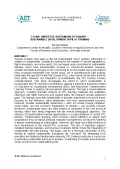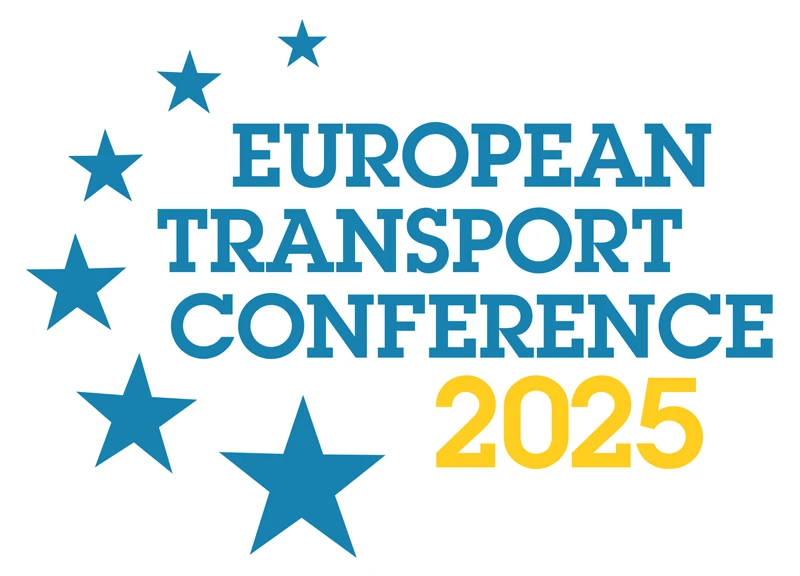-
Past ETC Papers

Browse, search and view papers from the past AET Conferences.
-
Members' Area

AET promotes networking and exchange of ideas, information and opportunities amongst members.
Conference Papers 2024
Antwerp, Belgium
ETC Conference Papers 2024
Flying Under The Sustainability Radar? – Sustainable Development in Pilot Training
Seminar
Day 1 (18 Sep 2024), Session 2, Sustainability, Green Skies and Intensity of Aviation Activity, 14:00 - 15:30
Status
Accepted, documents submitted
Submitted by / Abstract owner
Michael Stiebe
Authors
Michael Stiebe, Competence Center for Mobility, Lucerne University of Applied Sciences and Arts HSLU (presenter)
Short abstract
This paper presents findings from a multi-method study examining sustainability in pilot training. It identifies gaps in practices in theoretical and practical pilot training, and highlights implications for flight schools and the aviation industry.
Abstract
For many years, both general aviation (GA), and pilot training, a GA activity that generates vast numbers of aircraft movements and flight hours, have received only marginal societal, political and scholarly attention and widely flown under the radar of the sustainability discourse within the aviation sector. However, the times are changing, and now “(..) public pressure is climbing faster than a Cessna Citation X+. (..) after decades of postponing the discussion and action, we are the only ones to blame, the entire general aviation industry” Singh (2023).
This paper presents findings from a research project that examined the integration of sustainable development within private pilot training, underlining the formative role this stage plays in the careers of aspiring professional pilots for whom the attainment of a private pilot license (PPL) “(..) usually represents the first step in the pipeline to becoming a professional pilot” (Leuenberger & Lutte, 2022). The need to investigate and address sustainability in PPL training is underscored by recent empirical research findings highlighting that the majority of GA stakeholders see the sustainability issues to be insufficiently addressed in theoretical and practical PPL training (Stiebe, 2023).
The study applies the lens of the emerging field of Education for Sustainable (ESD) and builds its theoretical framework on the Mezirowian theory of transformative learning. Utilizing a multi-method approach, including a comprehensive thematic document analysis (after Braun & Clarke) of commonly used PPL(A) theory learning materials and textbooks (>2000 pages) in combination with six semi-structured interviews capturing the views of certificated flight instructors (CFIs), PPL theory instructors, flight students, and recently certificated private pilots, the research uncovers a pronounced scarcity of sustainability and sustainable development (SD) themes across both theoretical and practical aspects of pilot training. The empirical evidence suggests that existing training modules and materials only marginally address sustainability, primarily focusing on noise abatement and fuel efficiency without fostering a comprehensive understanding or critical perspective on broader environmental, social, and economic impacts.
It showed that CFIs generally acknowledge sustainability, focusing mainly on noise abatement and fuel efficiency (e.g. efficient leaning/mixing techniques). Furthermore, the promotion of using the available electric plane (Pipistrel Velis Electro) for basic PPL training flights shorter than 50 minutes emerged as a common theme. Some advocate for broader sustainability education within the curriculum, but note the practical challenges of integrating more comprehensive discussions on sustainability impacts due to current training structures.
On the other hand, student pilots proved to be aware of sustainability, especially in terms of technological solutions like electric planes that were often used by them as a conscious choice to reduce their environmental impacts during flight training. However, they reported no significant shift in their views on sustainability through their training, indicating a lack of transformative learning experiences that could deepen their understanding and commitment to sustainable flying practices.
The findings resonate with transformative learning theory, which posits the necessity of disorienting dilemmas for initiating reflective and profound learning experiences (Mezirow, 2008). The research identifies a significant gap in current training practices, highlighting the lack of an integrated sustainability framework capable of facilitating transformative educational experiences.
Given that obtaining a PPL(A) often constitutes the first significant step towards a professional aviation career, the study emphasizes the critical need for embedding ESD principles from the onset of pilot training. Advocating for a transformative ESD approach, the project proposes that such an educational shift could significantly influence more sustainable practices within GA, potentially impacting commercial aviation and the wider industry. This approach aims to equip emerging pilots with the necessary awareness and skills to contribute effectively to the aviation sector's sustainability challenges.
The study recommends a comprehensive revision of PPL(A) learning materials to include detailed insights into sustainability impacts, thereby encouraging critical reflection and discourse among trainees. It also suggests redefining the role of CFIs to act not merely as instructors but as facilitators of transformative learning, thereby nurturing a generation of sustainability-conscious aviators and agents of transformative change.
In sum, this research project illuminates the deficiencies in sustainability education within PPL(A) training while advocating for the strategic inclusion of ESD to advance holistic sustainable development in the aviation sector. As the foundational stage for professional aviation careers, PPL(A) training presents a pivotal opportunity for instilling sustainable values and practices that can influence the sector's evolution towards a more sustainable and resilient future.
Programme committee
Aviation
Topic
Air travel and airports
Documents:


Association For
European Transport
Forester House
Doctors Lane
Henley-in-Arden
Warwickshire, UK
B95 5AW
+44 (0) 15 64 793552
VAT number: 710 1866 64
Conference Supporters & Endorsers




Legal Entity
The Association for European Transport is registered as an Association ('vereniging') with the Chamber of Commerce for Haaglanden in The Netherlands under company number 27170096.
Built on Zenario




